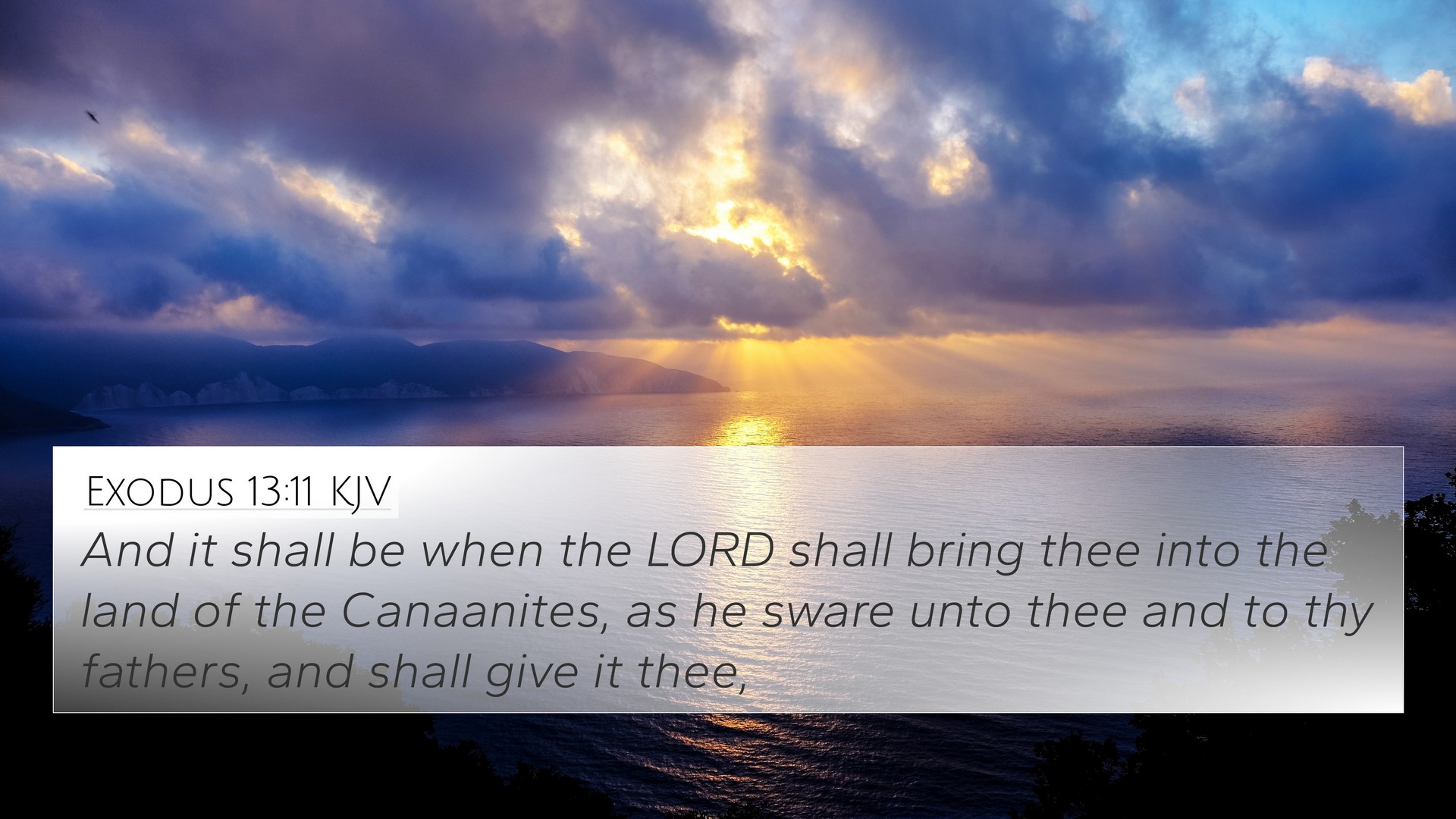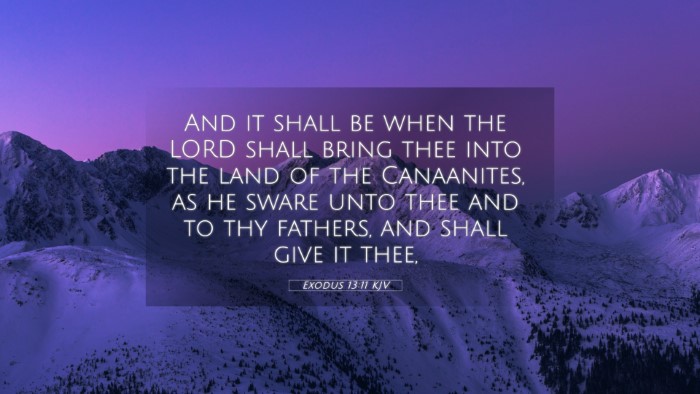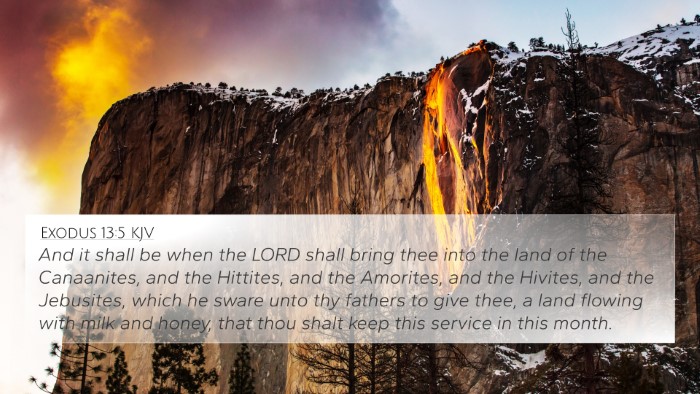Understanding Exodus 13:11
The verse Exodus 13:11 states: “And it shall be, when the Lord shall bring thee into the land of the Canaanites, as he sware unto thee and to thy fathers, and shall give it thee.” This verse highlights God’s promise to the Israelites about the land that He had promised to their ancestors. Its implications are deep and numerous, moving beyond just the historical context into the theological significance for believers today.
Contextual Background
Exodus 13:11 is set against the backdrop of the Israelite exodus from Egypt. After years of oppression, God miraculously saved them, bringing them to the Promised Land. This verse emphasizes the faithfulness of God to His promises.
Thematic Connections
- Promise of the Land: God's assurance to His people about the land has a dual significance—typically interpreted as a physical land as well as a spiritual inheritance.
- Covenantal Faithfulness: The verse attests to the covenant made with the patriarchs (Abraham, Isaac, and Jacob). It illustrates God's enduring faithfulness across generations.
- Divine Guidance: God leads His people, indicative of His involvement in human history and personal lives.
- Fulfillment of Prophecy: This verse connects to the greater narrative of Scripture, wherein the fulfillment of God's promises is a recurring theme, seen throughout the Old and New Testaments.
Bible Verse Cross-References
Exodus 13:11 can be cross-referenced with several other verses that explore similar themes of divine promise and fulfillment:
- Genesis 12:7: God’s promise to Abraham regarding the land.
- Genesis 17:8: God's everlasting covenant with Abraham's descendants concerning the land of Canaan.
- Numbers 33:53: Instructions about possessing the land God promised.
- Deuteronomy 1:8: The command to go in and possess the land that the Lord swore to give.
- Joshua 1:2: The command to Joshua to lead the people into the land of Canaan.
- Ephesians 1:11: Discussion about our inheritance as believers which parallels the Israelites' inheritance of Canaan.
- Hebrews 11:9-10: Acknowledgment of Abraham's faith in God’s promise, the ultimate fulfillment still awaited.
Interpretative Insights from Commentators
Scholarly commentaries provide further insights into the richness of this verse:
- Matthew Henry: Highlights that the promise of the land signifies God’s grace and faithfulness to those who trust in Him.
- Albert Barnes: Emphasizes the historical context, explaining how the act of possessing the land involves obedience to God's commands.
- Adam Clarke: Expounds that this promise is not only for material inheritance but also signifies spiritual richness that believers receive through faith.
Applications for Today’s Believers
The message encapsulated in Exodus 13:11 holds several applications for believers today:
- Trust in God's Promises: Just as He promised the Israelites, God continues to fulfill His promises today. Believers can trust in His faithfulness.
- Understanding Our Spiritual Inheritance: Like the Israelites, Christians have a spiritual inheritance that requires faith and obedience.
- Encouragement during Trials: The Israelites were in a challenging situation; believers today can find comfort knowing that God leads them through struggles.
- Call to Obedience: The context of the promise was linked with the call to obedience, a reminder that our response to God’s grace matters.
Conclusion
In Exodus 13:11, we find a profound promise rooted in the character of God. It serves as a reminder not just of a past promise made to the Israelites, but also of enduring principles for believers striving to understand their spiritual journey. This verse links beautifully with various scripture references, establishing connections within the wider biblical narrative. As we study the Scriptures, utilizing tools for Bible cross-referencing, we not only uncover the depths of divine promise but also engage in an inter-Biblical dialogue that enriches our faith.



